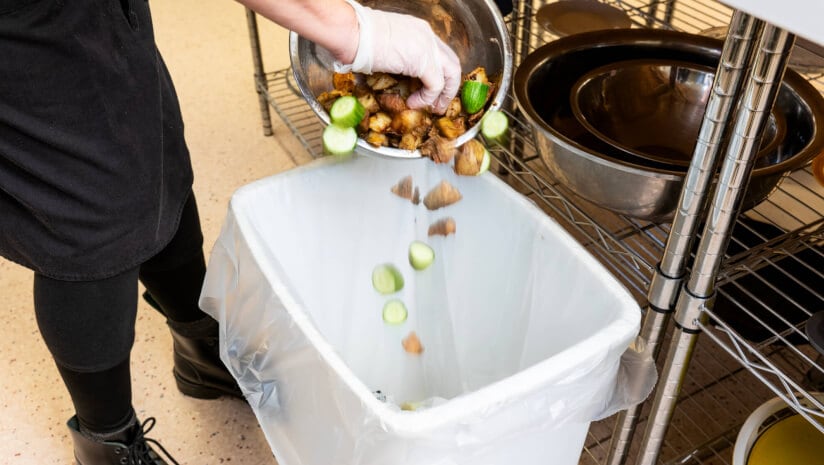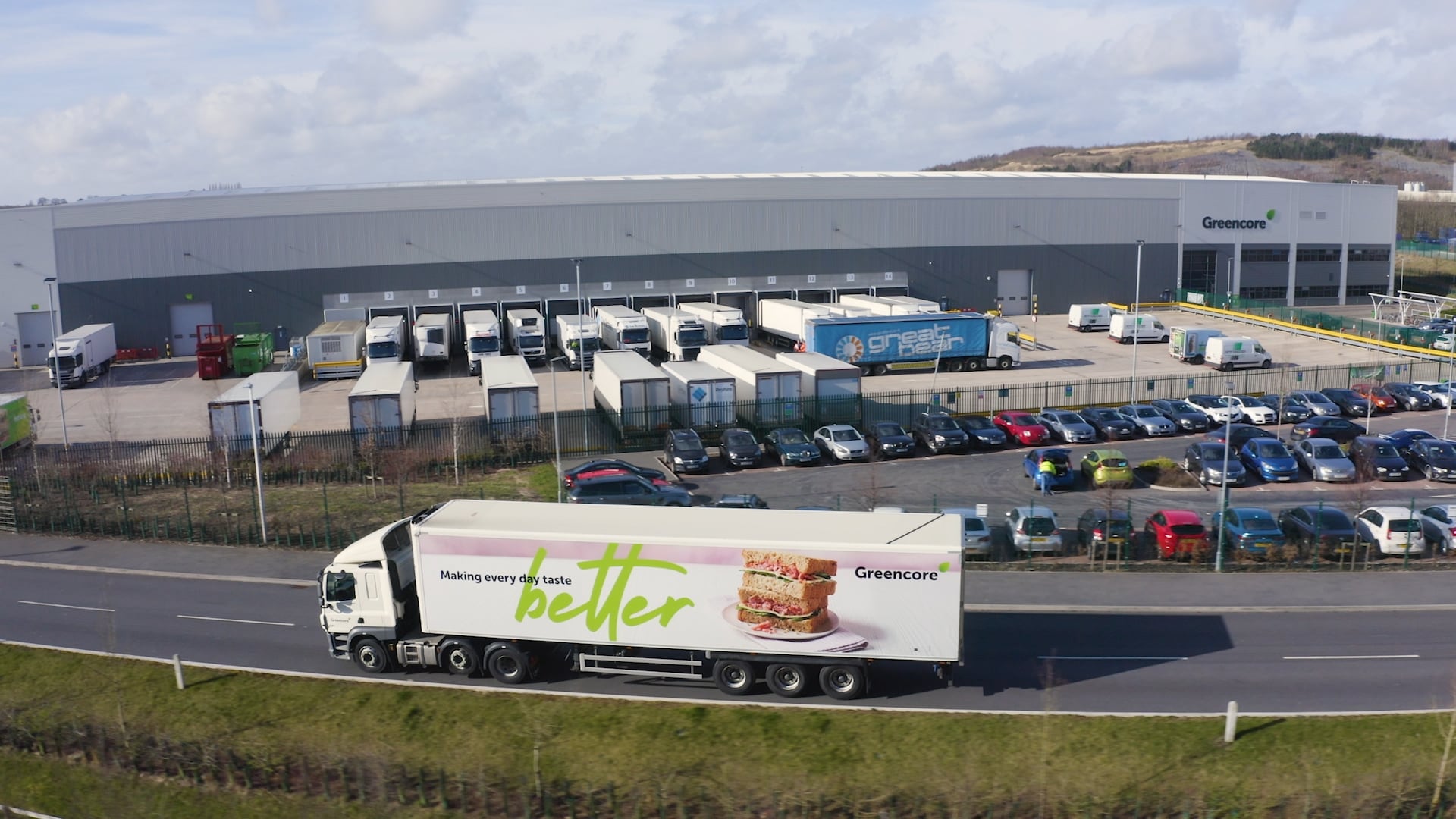With the new food waste legislation, Simpler Recycling, coming into effect on 31 March 2025, there is now a legally enforceable onus on food manufacturers, retailers, vendors and venues to report on how they separate waste, dispose responsibly and evidence their environmental impact.
Separation from general waste
The most immediate change for businesses is the requirement to separate food waste from general waste. While businesses will have waste management procedures in place, the new legislation enforces stricter monitoring and compliance, making waste separation non-negotiable.
For retailers and supermarkets, the biggest challenge lies in handling unsold perishable goods and damaged stock. These businesses must ensure that food waste is diverted from landfill and either repurposed, recycled, or donated. This will require investing in separate bins, in-store segregation processes, and working closely with charities and food redistribution networks to sensibly manage surplus stock. Staff training will be key as front and backroom employees all need to understand how to correctly sort waste and follow proper disposal procedures.
Restaurants, cafés, and hotels require greater precision than what they are already accustomed to for managing waste. Kitchens must separate food scraps from packaging, and new procedures will be needed for tracking waste. The practical challenge here is dealing with customer waste – which cannot easily be repurposed. Businesses may need to rethink portion sizes, encourage takeaway options for leftovers, and implement clearer inventory management.
Responsible disposal of food waste
Once food waste is separated, businesses must ensure it is disposed of correctly. The legislation sets out clear guidelines on what can and cannot go to landfill, pushing businesses towards more sustainable options such as composting or anaerobic digestion.
For retailers, this could create opportunities to strengthen partnerships with charities and food banks to donate edible but unsellable products. It also requires businesses to work with waste disposal firms that offer sustainable processing methods. Large retailers may also explore innovative waste-to-energy solutions that allow unavoidable waste to be repurposed.
Hospitality businesses must work closely with food waste collection services to ensure scraps are processed in an environmentally friendly manner. While some restaurants are already adopting circular economy methods, turning food waste into compost or biofuel, businesses must educate customers and devise incentive programs to reduce excess waste at the table.
For food manufacturers, the disposal process must be carefully managed, particularly when dealing with organic by-products. Poultry processing plants, for example, generate large amounts of nitrates that must be carefully handled to prevent environmental contamination.
While manufacturing by-products can be repurposed into animal feed or energy production, businesses need to document and justify waste disposal more rigorously. Manufacturers must invest in tracking systems to ensure compliance and explore partnerships that allow them to use all possible materials efficiently. Many manufacturers will need to upgrade their waste processing systems and adopt new disposal technologies to remain compliant.
Reducing environmental impact and ensuring compliance
Beyond separation and disposal, businesses must actively reduce their environmental impact by cutting down on waste generation in the first place. The legislation becomes more than just a compliance issue – it represents a shift in how businesses manage resources.
For supermarkets, improving demand forecasting could reduce the volume of perishable goods that go unsold. Advanced inventory management and AI-driven analytics can help retailers anticipate demand more accurately, ensuring that stock levels align more closely with purchasing habits.
Hospitality businesses may look to reduce waste at the source by redesigning menus to include more sustainable ingredients, offering flexible portion sizes, or even implementing dynamic pricing to encourage customers to purchase surplus food at a discount. Staff training will also be essential, ensuring that employees understand the role they play in minimising waste.
Optimising production lines to generate less waste and finding innovative ways to repurpose by-products is key for producers to reduce environmental impact. For example, breweries repurposing spent grains into flour or animal feed. While investing in waste-reduction technology can be expensive, long-term savings and regulatory compliance make it a necessary step.
The cost on non-compliance
Businesses that do not separate food waste properly, fail to report their waste levels, or dispose of waste irresponsibly could face severe financial penalties. While specific fine structures and enforcement authorities are still being clarified, it is likely that larger businesses will face steeper fines proportional to the scale of their operations.
Reputational damage is another major concern. Sustainability is a key factor in consumer decision-making, and high-profile breaches of the legislation could lead to public backlash and lost custom.
Restaurants and hospitality businesses may be more vulnerable to disruptive interventions. Regular inspections and potential enforcement actions could lead to penalties or even temporary closures for non-compliance. Keeping clear records of food waste management processes can mitigate legal complications.
For manufacturers, non-compliance could disrupt supply chains, particularly if waste disposal partners or regulators impose restrictions. Businesses may inevitably find that failing to remain compliant impacts their ability to secure contracts with retailers and suppliers.
Looking ahead
In theory, the legislation should increase waste responsibility across the food industry. The transition to ensure compliance may be costly and logistically challenging, but it also presents an opportunity to embrace food waste reduction, improve operational efficiency, and enhance sustainability. We recommend businesses seek the support of a food specialist regulatory and licensing lawyer to guide them through this major change.




